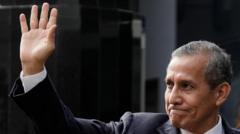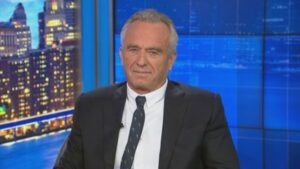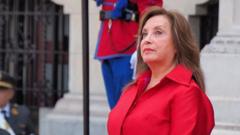Ghanaians expect swift action from Mahama, who defeated vice president Bawumia, but doubts linger about fulfilling promises.
Ghana’s New President Faces Expectations After Landslide Election Win

Ghana’s New President Faces Expectations After Landslide Election Win
John Mahama's return to power raises hopes for economic recovery and anti-corruption efforts in Ghana.
Former President John Mahama of Ghana is stepping back into office as voters anticipate significant changes after his resounding election victory last month. Mahama's stunning win over Vice-President Mahamudu Bawumia, with 56.6% of the vote, marked the most substantial margin of victory in two decades. His party, the National Democratic Congress (NDC), is in a powerful position within parliament with 183 seats secured, although they still need to clear a few contested seats to achieve a two-thirds legislative majority.
Ghanaians, facing a challenging economic landscape, are voicing their desire for immediate improvements. Among them, Tamale teacher Belinda Amuzu expressed a common sentiment: "We want the new government to change the economy and take action against corruption." This sentiment emerged in the wake of a cost-of-living crisis that has undermine the public perception of Bawumia, once seen as an economic savant.
Outgoing President Nana Akufo Addo presented a contrasting narrative on Ghana's financial state, claiming to leave behind an economy with gross international reserves of nearly $8 billion. However, opposition representatives argue the situation remains dire, with significant debt and high unemployment persisting. Ghanaian economist Prof. Godfred Bokpin warned the new administration faces formidable challenges, emphasizing the necessity for effective leadership.
As Mahama prepares to take over, he's pledged to streamline the cabinet size and ensure appointments are based on merit. His choice for vice-president, Prof. Naana Jane Opoku-Agyemang, is celebrated for expertise rather than token representation. The 2023 elections have revived hopes, as many voters who once abandoned Mahama now recognize the value of infrastructure established during his previous administration.
Mahama's promises center on job creation, tax reform, and initiating a "24-hour economy." Nevertheless, skepticism remains regarding execution; critiques point to prior failures in managing electricity during his first term. Prof. Bokpin stressed the need for realistic budgeting to bring these promises to fruition.
Notably, Mahama's struggle against corruption takes center stage, as previous allegations have dogged both his administration and the outgoing government. He has vowed to hold predecessors accountable and explore special courts for corruption cases. This effort is vital for restoring trust in governance, especially as he embarks on his term amidst heightened expectations.
Following Mahama's inauguration set for Tuesday, analysts agree that success depends on his ability to address Ghanaians' demands. His prior experience as president, combined with a determined vision, suggests he may harness the necessary skills to navigate the upcoming complexities. As he aptly stated in his victory speech, "We cannot afford to disappoint" the electorate.
Ghanaians, facing a challenging economic landscape, are voicing their desire for immediate improvements. Among them, Tamale teacher Belinda Amuzu expressed a common sentiment: "We want the new government to change the economy and take action against corruption." This sentiment emerged in the wake of a cost-of-living crisis that has undermine the public perception of Bawumia, once seen as an economic savant.
Outgoing President Nana Akufo Addo presented a contrasting narrative on Ghana's financial state, claiming to leave behind an economy with gross international reserves of nearly $8 billion. However, opposition representatives argue the situation remains dire, with significant debt and high unemployment persisting. Ghanaian economist Prof. Godfred Bokpin warned the new administration faces formidable challenges, emphasizing the necessity for effective leadership.
As Mahama prepares to take over, he's pledged to streamline the cabinet size and ensure appointments are based on merit. His choice for vice-president, Prof. Naana Jane Opoku-Agyemang, is celebrated for expertise rather than token representation. The 2023 elections have revived hopes, as many voters who once abandoned Mahama now recognize the value of infrastructure established during his previous administration.
Mahama's promises center on job creation, tax reform, and initiating a "24-hour economy." Nevertheless, skepticism remains regarding execution; critiques point to prior failures in managing electricity during his first term. Prof. Bokpin stressed the need for realistic budgeting to bring these promises to fruition.
Notably, Mahama's struggle against corruption takes center stage, as previous allegations have dogged both his administration and the outgoing government. He has vowed to hold predecessors accountable and explore special courts for corruption cases. This effort is vital for restoring trust in governance, especially as he embarks on his term amidst heightened expectations.
Following Mahama's inauguration set for Tuesday, analysts agree that success depends on his ability to address Ghanaians' demands. His prior experience as president, combined with a determined vision, suggests he may harness the necessary skills to navigate the upcoming complexities. As he aptly stated in his victory speech, "We cannot afford to disappoint" the electorate.






















